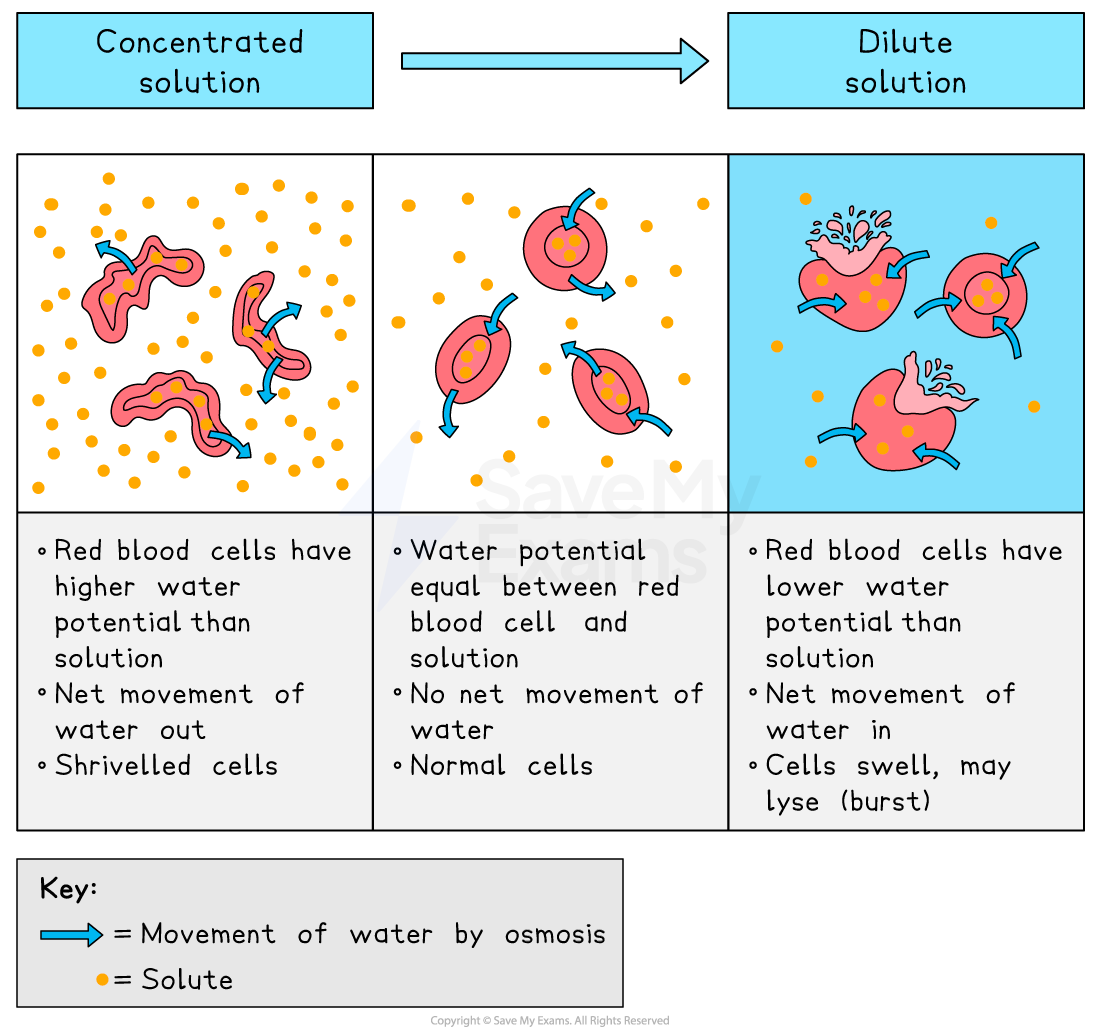Kidney: Excretion & Osmoregulation (Edexcel IGCSE Biology (Modular)): Revision Note
Exam code: 4XBI1
The Kidney
The kidneys are located in the back of the abdomen and have two important functions in the body:
They regulate the water content of the blood (vital for maintaining blood pressure and osmoregulation)
They excrete the toxic waste products of metabolism (such as urea) and substances in excess of requirements (such as ions)
Osmoregulation
Osmoregulation is the process of maintaining water and salt concentrations (osmotic balance) across membranes within the body
Osmoregulation is an example of homeostasis in the human body
The importance of osmoregulation
The cytoplasm of all cells is largely composed of water, as is the blood plasma
Maintaining water levels in the body is vital to prevent harmful changes occurring to cells of the body as a result of osmosis
If body cells lose or gain too much water by osmosis they do not function efficiently:
Too much water in the blood results in cells swelling as water moves into them, this has a diluting effect and can lead to cell lysis (bursting)
Too little water in the blood (or too high an ion concentration) and the cells lose water by osmosis, this has a dehydrating effect and can lead to cell death

The effect of water concentration on body cells due to osmosis
Water content of the body
There are two sources of water in the body:
Water produced as a result of aerobic respiration
Water in the diet
Water is lost from the body in the following ways:
Via the lungs during exhalation (breathing out)
Lost from the skin as sweat (along side mineral ions and urea)
Water lost through the lungs or skin cannot be controlled, but the volume of water lost in the production of urine can be controlled by the kidneys

Unlock more, it's free!
Did this page help you?